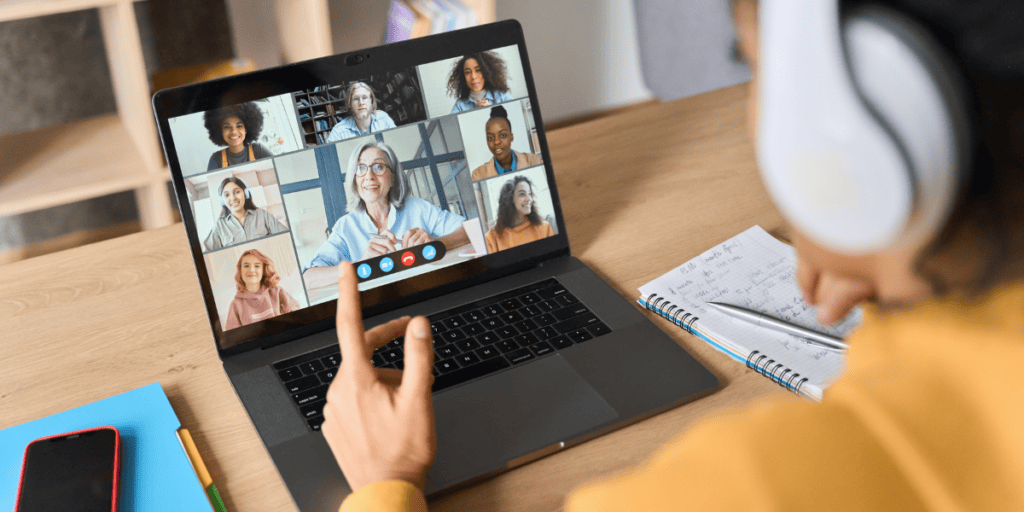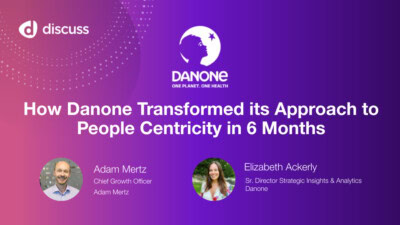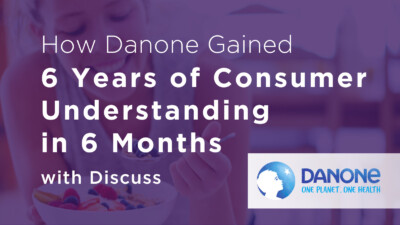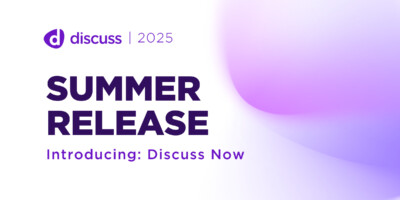A Pulse of the American Public

In this world of data overload, there is no shortage of facts and figures. With so much information rushing in – from social media, to the nightly news, and polls – we are swimming in data, and never more so than during the election season. A recent CNN/ORC poll showed 57% saying that Hillary Clinton won the debate, as opposed to 34% saying that Donald Trump won. Over the past several months, we have seen countless polls, each time with the statistics changing. These polls indicate where the American public currently stands on the issues. However, they fail to provide insights on the why behind these opinions. Why do some voters favor Trump while others favor Clinton? What are the issues that the American public wants addressed and why do they matter to them? Why is no one is tackling these questions?
The short answer is that this type of research is viewed as a hassle that costs too much time and money. Traditionally, qualitative research takes months to complete. Of course, this is not ideal for topics involving current events, which need to be covered immediately in order to remain relevant.
At Discuss.io, we strongly believe in the power of asking “why.” We created a platform to disrupt traditional methods by removing the barriers that make qualitative research complicated and inefficient. Our platform answers the “whys” at 10x the speed of traditional methods, while significantly reducing cost.
We decided to put our platform to the test, and deliver in-depth research while it is still relevant. With the election season in full swing, we wanted to understand voter perspectives and the “whys” that drive voters’ decisions. What better time to do this than after a highly anticipated presidential debate? Immediately following the debate, we conducted focus groups with undecided voters living in three swing states: Florida, Ohio, and Arizona. Each focus group consisted of four participants between the ages of 28-64, all who are registered and eligible to vote in their states.
Here’s what we found:
Our results clearly indicate that those who said that they were undecided voters before the debate are now overwhelmingly planning to vote for Hillary Clinton. As demonstrated in the CNN poll, these participants believed that Clinton did a better job during the debate, with multiple participants largely reporting that the debate impacted their stance on the candidates. Being undecided, these participants were open to hearing out both candidates, in order to make their best informed and confident decision. Despite widely favoring Clinton after the debate, participants nonetheless raised concerns about the candidate; citing questions of trust and integrity in her past and future actions.
Repeatedly, participants described Donald Trump’s performance as “childish,” “off topic,” and “unprepared,” while describing Clinton’s performance as “prepared,” “poised,” and “confident.” While Clinton may have won the second presidential debate in the eyes of the participants, many stand by their pre-existing reservations about the former Secretary of State. A distrust of Clinton was repeatedly cited as one of these hang-ups.
Participants were quick to express concerns about Trump as well. Participants largely felt that his performance during the debate was unprofessional and unprepared – using his time to make attacks on Clinton rather than answering the questions that were asked of him during this “town hall” style debate. Participants viewed this negatively. Conversely, participants appreciated that Clinton used her time to clearly express the agenda of her candidacy. Despite hearing her plans, some participants nevertheless expressed uncertainty about what she truly believed and how she would act in reality, as if she “wore a mask” that disguised her true opinions. While some the participants may not have agreed with all of Trump’s stances, they felt confident that he spoke his mind and was very clear about his true stance.
In addition to his performance in the debate, participants also raised concerns about Trump’s lack of political experience as well as his stance on various issues: ranging from sexual assault to racial injustice. The public may distrust Hillary, but they are scared of Trump. This emotion has played a substantial role this election season, prompting many voters, including these participants, to use a “lesser of two evils” rhetoric when speaking about the candidates.
This unbiased pulse check of the American public allows us to understand how undecided voters – those who will tip the scales in one direction or the other – are kept informed on political issues and how they are influenced by performances at debates.
The political debates and presidential election are topics that affect millions of people in and outside of the United States. We believe that the American public deserves access to this information and we are proud to produce work that is relevant and meaningful. Be sure to check out the video reel below to see highlights from the focus group sessions, as well as the full-length videos from each state below.
“At Discuss.io, we take pride in delivering a radically different approach to conducting market research,” said founder and CEO, Zach Simmons. “By removing barriers and democratizing access to research, combined with our capacity to complete projects 10x faster than traditional methods, we are able to produce research while it’s still relevant. Uncovering insights from undecided voters in swing states is one such example.”
“At Discuss.io, we’re taking market research to innovative new heights with our current video conferencing platform and upcoming product roadmap. We have maintained the core, valuable aspects of qualitative research and augmented the experience,” said Shalendra Chhabra, VP of product and marketing. He elaborated further, citing an example, “One of the core benefits of qualitative research is the ability to capture individual insights and participant emotion, however, traditional methods don’t have any way to track this feedback. Our bookmarking tool allows researchers to easily flag these poignant moments as they happen in real time and revisit them later.”
Follow Discuss.io on Twitter to see what future real-time pulse checks we have up our sleeves.
Ready to unlock human-centric market insights?
Related Articles

How to Facilitate Meaningful Insights: Strategies for Effective Focus Group Discussions
Conducting a worthwhile focus group requires a strong purpose and well-defined objectives. This isn’t an ordinary chat; it’s an organized…
Conducting a worthwhile focus group requires a strong purpose and well-defined objectives. This isn’t an ordinary chat; it’s an organized…

How to Optimize Engagement with a Virtual Focus Group: Strategies and Tips
Creating successful engagement in virtual focus groups starts with proper planning. This involves everything from the setup of your digital…
Creating successful engagement in virtual focus groups starts with proper planning. This involves everything from the setup of your digital…

Maximize the number of research projects completed by year’s end: Yes, it can be done
Ask most agencies managing enterprise-level market research (MRX) projects, and they’ll tell you they have a love/hate relationship with their…
Ask most agencies managing enterprise-level market research (MRX) projects, and they’ll tell you they have a love/hate relationship with their…



